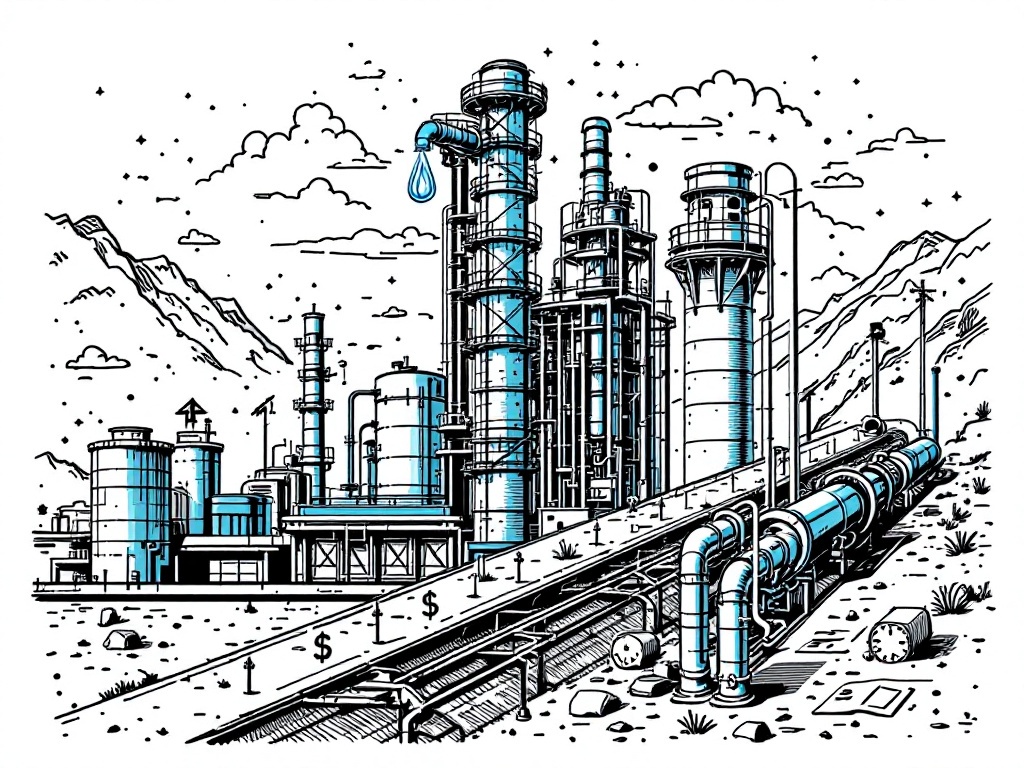Jordan to Launch $5 Billion Desalination Project to Boost Water Supply

Amman, Monday, 13 January 2025.
Jordan has signed a $5 billion deal with a French-led consortium to build one of the world’s largest desalination plants, aiming to increase its water supply by nearly 60%.
Strategic Partnership and Project Scope
The agreement, signed on January 12, 2025, brings together French infrastructure specialist Meridiam, SUEZ, Orascom Construction, and VINCI Construction Grands Projets [1][3]. The ambitious project will be developed under a Build-Operate-Transfer (BOT) model, with the consortium responsible for financing, designing, constructing, and maintaining the system for a 26-year operational period [2]. Located in Aqaba, the facility aims to produce 300 million cubic meters of drinking water annually, serving approximately four million people [1][2].
Technical Infrastructure and Innovation
The project encompasses several cutting-edge components, including an advanced seawater intake system along the Gulf of Aqaba coastline and a state-of-the-art desalination facility utilizing reverse osmosis technology [2]. A crucial element of the infrastructure is the 450-kilometer pipeline network that will transport freshwater to Amman [1]. Notably, the project will partially rely on renewable energy sources, aligning with Jordan’s national energy strategy to generate 31% of electricity from renewable sources by 2030 [2].
Economic and Environmental Impact
This infrastructure project, the largest ever undertaken in Jordan [3][5], represents a significant shift in the country’s water security landscape [5]. The initiative will increase Jordan’s total annual domestic water supply by approximately 60% [3][6], addressing critical water scarcity issues in one of the world’s most water-scarce countries [1]. The project is scheduled for completion in 2029 [3], after which it will be transferred to Jordan’s Ministry of Water and Irrigation as a national asset [1].
Regional Context and Strategic Implications
This new initiative comes as Jordan seeks to reduce its dependence on external water sources. Currently, the country relies on water imports from Israel, receiving 50 million cubic meters annually from the Sea of Galilee under the 1994 peace treaty [1]. The project marks a significant departure from previous regional water initiatives, notably following Jordan’s withdrawal from the Red Sea-Dead Sea project [5][6]. This strategic move towards water independence represents a crucial step in securing Jordan’s water future and strengthening its infrastructure resilience.
Sources
- www.aa.com.tr
- jordantimes.com
- www.timesofisrael.com
- timesofindia.indiatimes.com
- english.ahram.org.eg